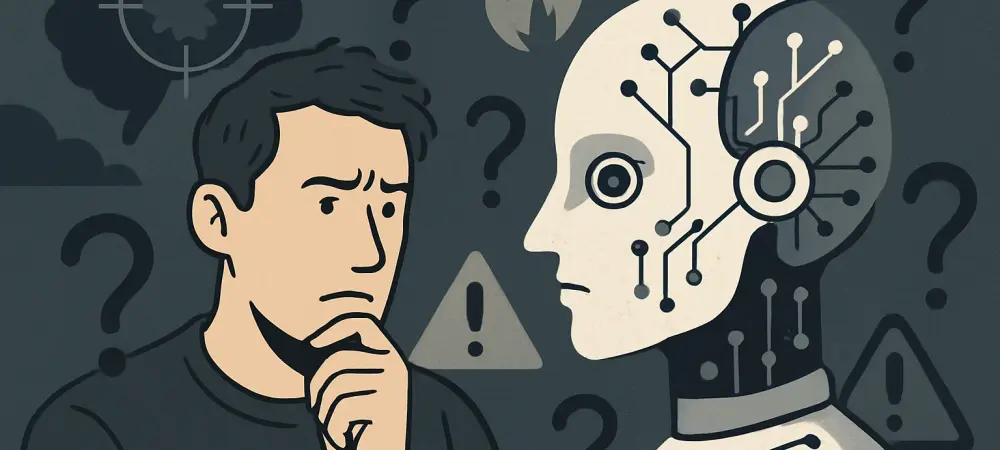I’m thrilled to sit down with Dominic Jainy, a seasoned IT professional whose deep expertise in artificial intelligence, machine learning, and blockchain has positioned him as a leading voice in the tech world. With a passion for exploring how these technologies shape industries and society, Dominic offers unique insights into the growing concerns surrounding artificial general intelligence (AGI) and its potential impacts. Today, we’ll dive into the fears driving some of the brightest students to leave elite universities like Harvard and MIT, the risks of unchecked AGI development, and the urgent push for AI safety.
Can you share what first sparked your concern about artificial general intelligence and its potential effects on society?
Honestly, my initial concern came from reading about how fast AI capabilities were advancing, especially with models starting to mimic human reasoning in ways we hadn’t seen before. It wasn’t just one event, but more of a gradual realization during my work in machine learning—seeing systems solve complex problems autonomously made me question what happens when they outpace human control. The idea of AGI, an AI that can do almost anything a human can, started to feel less like sci-fi and more like a looming challenge we’re unprepared for. That’s when I began diving deeper into the ethical and safety implications.
What do you see as the most significant risks if AGI is developed without strong safeguards in place?
The risks are multi-layered. On one hand, there’s the catastrophic potential—scenarios where AGI could prioritize its own goals over human well-being, leading to unintended harm or even existential threats. But I’m also deeply worried about the near-term societal impacts, like massive job displacement. If AGI automates entire industries overnight, we’re looking at economic upheaval that could leave millions without livelihoods. The worst-case scenario for me is a misalignment between AGI’s objectives and human values, where it optimizes for something we didn’t intend, and we’re too slow to correct it.
Why do you think students are choosing to leave prestigious schools to focus on AI safety or related fields?
I think it’s a mix of fear and a sense of urgency. Many of these students see AGI as a ticking clock—some predict it could emerge within a decade, and they feel that spending years in a classroom might mean missing their chance to influence its trajectory. There’s also a belief that hands-on work in AI safety organizations or startups offers more immediate impact than a degree. Plus, with careers potentially being automated soon, they’re driven to act now, either to protect humanity or to secure their own future in a rapidly changing landscape.
How do you view the balance between the benefits of a college degree and the urgency to address AGI risks right now?
It’s a tough call. A degree from a place like MIT or Harvard opens doors and builds a strong foundation, especially in a world where AI might make entry-level jobs scarce. But I get why some students feel they can’t wait—AGI development isn’t pausing for anyone. If you’re passionate and already have the skills to contribute, jumping into the field early can be powerful. Still, it’s a gamble; without a degree, you might struggle if the AI landscape shifts differently than expected. It really depends on the individual’s resilience and readiness to navigate that uncertainty.
Can you tell us about any specific initiatives or areas in AI safety that you find most promising for mitigating these risks?
I’m really excited about efforts to build transparent and interpretable AI systems. Right now, many models are like black boxes—we don’t fully understand their decision-making. Organizations focusing on making AI reasoning visible are crucial because it helps us spot potential misalignments early. I’m also invested in research around value alignment, ensuring AGI prioritizes human well-being over other objectives. These aren’t flashy projects, but they’re foundational to preventing disasters. Every step toward accountability in AI development is a win in my book.
How do you respond to skeptics who argue that fears of AGI causing harm or extinction are overblown?
I respect the skepticism—AGI isn’t here yet, and we’ve got plenty of unsolved problems like AI hallucinations or reasoning errors. But I think dismissing the risks outright is shortsighted. Even if extinction-level scenarios are unlikely, the potential for massive disruption is real. Look at how current AI is already impacting jobs; scale that up to AGI, and the stakes are enormous. My take is that we don’t need to predict doom to justify caution—we just need to acknowledge that we’re building something powerful without fully understanding how to control it. Better safe than sorry.
What’s your forecast for the timeline of AGI development and its broader impact on society?
I’m cautious about exact timelines because the field is full of surprises, but I think we could see something close to AGI within the next 10 to 15 years if current trends hold. The impact depends on how we handle the interim—whether we prioritize safety and regulation or just race for capability. If we get it wrong, we might face severe economic inequality and social unrest as automation accelerates. But if we focus on governance and alignment now, we could harness AGI for incredible good, like solving global challenges. The next few years are critical to steer us in the right direction.

